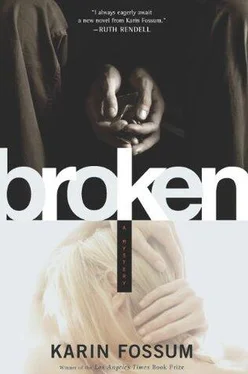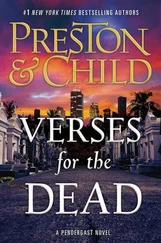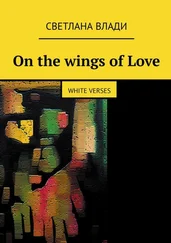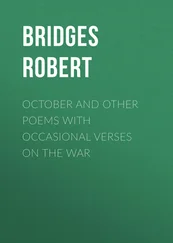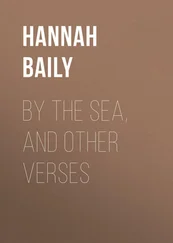‘Well, that’s a rather limited view of things.’ He picked up another seekh kabab. ‘A minimum of sixty women in the house is bound to affect business in some way or the other, don’t you think? This is the chance for you to prove right your mother’s theories about how women are the real dynamic and revolutionary force in this nation.’
‘My mother’s theories, like the nation, can sod off. And so can you.’
And that was that.
But now, standing in the garden at midnight, listening to everyone around me arguing different gloomy scenarios for the future of the nation, I couldn’t help wondering what my mother would think if she turned on a TV one day and saw me sitting in the National Assembly.
What if he comes back and she comes back too, and they leave again and don’t tell you where?
Who, or what, would I need to be to make her stay this time?
a) member of parliament
b) apolitical quiz show researcher
c) capitalist corporate girl
d) translator of obscure Urdu diaries by day, party animal by night
Answer: this is a trick question. All depends on who she is now .
I walked up to my flat, with an old, too-familiar heaviness tugging at my limbs. It was there the following morning, too, as I reached the studio and made my way to my office, to another day in which Shehnaz Saeed didn’t send me more encrypted pages, another day in which Ed didn’t call, another day in which I was no closer to knowing anything about where the Poet was and how to get to him.
Someone called my name as I climbed the stairs. I looked down to see an elderly journalist who had recently been hired to fill the spot offered to me as host of the political chat show. He was climbing up the stairs from the basement, wiping pancake make-up off his face.
‘Word’s got out about what you’ve been doing,’ he said, as we met on the ground floor.
‘The quiz show?’ I said.
He took my elbow and steered me away from Kiran Hilal’s team who had just walked out of the ground-floor conference room. The first three episodes of Boond had been filmed over the last week, and the STD office was still full of talk about the brilliance of Shehnaz Saeed and the idiocy of the Mistress’s Daughter who had declared she couldn’t film any romantic sequences before sunset because you’re supposed to suppress ‘those feelings’ while fasting.
The journalist pulled me into the empty kitchen and turned to face me. ‘There was a reporter at the Archivist’s flat when you went there. The Archivist is a big gossip. He told the reporter who you were and which file you were looking at. Then Nasreen Riaz told her cousin, who works on our sports page, that you called her, too, asking about her brother’s death. Now everyone at the newspaper office is speculating what you might be after.’ He dropped his voice. ‘Listen, you’re still young and you might be fooled by the illusion of democracy. But believe me, power is still in the hands of the same old people. Nothing’s changed.’
And with that, I was back to the habits of my childhood, looking around to see who was there, and then beckoning the journalist through the door into the back garden, out of range of any listening devices.
‘What do you know that I shouldn’t know?’ I asked him. Even though we’d barely ever spoken before, I trusted him. Omi used to call him ‘the press corps’ voice of conscience’.
He smiled a little at my cloak-and-dagger antics. ‘My guess is the only bugs in the kitchen are of the Osama Bin Roach family.’ He grew serious again. ‘But if you’re asking me if I know who killed the Poet, I know only as much as everyone does. It’s an open secret who those men were, the ones who ransacked his house and burnt his poems. Or, if not who they were, then certainly who they worked for. It was a government agency, Aasmaani, and the people who were involved are quite likely still in positions to know when people start snooping around where they shouldn’t be.’
‘So you’re not one of those people who believed there was more to the story of his death than simply that the government had him killed?’
He looked at me with interest for the first time. ‘If it wasn’t the government, then who?’
I had to admit I had no idea, and then he looked offended, as though I were casting aspersions on his skills as an investigative reporter.
‘There was no reason to point a finger in any direction other than the one in which we couldn’t ever publicly point it.’
‘But why? Why should they kill him, after all those years when they didn’t? Why not just arrest him again?’
‘Are you really such a child? Don’t you know enough by now to know they don’t need a reason for killing? You think of it as a big decision, whether or not to take a life. They don’t. It’s like picking teeth to them. Why shouldn’t they do it? Who’s going to stop them?’ He pointed a finger sternly at me. ‘If you’re planning to find out who exactly gave the order and who exactly carried it out, if what you’re looking for is a name, don’t. I know how these people operate, and believe me, you don’t want to find yourself in their radar.’
‘You’re the last person I’d expect to hear advising someone to lie low. Can I ask, would you be saying that if I wasn’t a woman?’
‘But you are a woman.’
‘So’s my mother,’ I shot back.
‘I rest my case.’
I opened my mouth to argue, but he straightened his pointing finger into a vertical position to demand an end to the conversation. ‘Keep out of trouble. The Poet and your mother were friends of mine. I owe it to them to tell you what a mistake you’d be making to continue with this madness.’
I remembered all the phone calls from unidentified numbers over the last weeks, the caller hanging up as soon as I answered. When had they started? The day I visited the Archivist, wasn’t it? That very evening, in fact.
What surprised me then was not the feeling of panic that made me want to step on to a plane and leave the country as soon as possible, but the exhilaration that accompanied the panic. It was genetic, that exhilaration, and suicidal, too. But for a moment I let it wash over me. By God, I would give them reason to train their radars on me!
And then the exhilaration was gone. Who was ‘them’? Who was behind Omi’s captivity? Was it an individual or a group, and what were his or their allegiances and contacts and motives? Whom could I trust?
I looked at the journalist. Was he acting on behalf of my mother and Omi, or someone else entirely in telling me to stop my search for answers?
‘You’re right,’ I said. ‘It was just a moment of silliness. There won’t be any more.’
No, no more pathetic attempts at playing detective. It would get me nowhere. The only person who could give me the answers I needed was Omi. If only he would write again. When would he write again?
It was much later that night, as I was drifting to sleep, that I thought, what if he has written again already? My eyes opened to the faint green glow of an octopus reaching its tentacles towards me. What if Ed told his mother I could read the pages? If she knew I’d been lying to her, why should she continue to send the pages to me? She owed me nothing, after all. She was, Beema had said, a woman who regarded trust as a sacred thing, and I had done nothing from the beginning but deceive her.
I thought, I’ll call her first thing in the morning. And then I thought, Ed. I thought of his hand reaching out to mine on the other side of sunlight and how I turned away from him, choosing to see everything between us as evidence of his manipulation. When the truth of it was, all he’d done was show he was just as confused as I was by the coded pages. Over three weeks gone now since that last meeting between us, and I hadn’t called to apologize, or to say what was simply true — that I missed him.
Читать дальше
